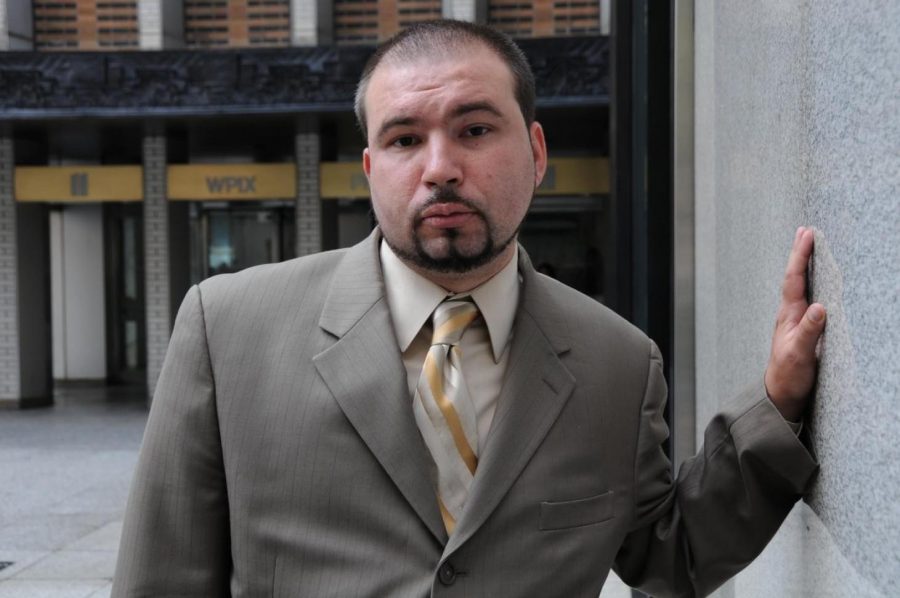Life After Being Wrongfully Convicted
Mercy Alum Jeffery Deskovic fought for 16 years to feel the sun one more time
November 2, 2015
A 33 year-old Jeffrey Deskovic had gotten a visit from his lawyer that September day in 2006. But the news he had brought with him was something that seemed too good to be true for Deskovic. His lawyer asked for his clothing and shoe size, and had gone back on his way.
Deskovic hadn’t told anyone what was going on. Nor did he want to. For nearly two decades he rotted away in a cell for a crime he swore he didn’t commit.
“I was convinced something was going to go wrong,” he remembers.
He put down the phone receiver and stood in disbelief. He saw prison guards watching his every move. He stared at the bars containing everyone around him and the barbed wire in the distance. He wondered where 16 years had gone.
That night Deskovic could not sleep. His mind was racing with the event that was going on the next day.
Before he knew it, dawn had broken, and a van was there to pick him up to take him to Ossining, his first step in becoming a free man.
On his journey he remembers looking outside, seeing the passing cars, and then looking down at his handcuffed arms. He couldn’t stop thinking about the two realities – was it a dream or was it real?
As he waited in the holding area that day, minutes seemed to turn into hours. Something was going to go wrong, he figured. It always had for him for so long.
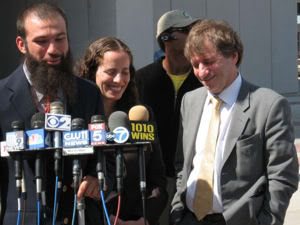
This was not really going to happen.
But the time had finally come.
Deskovic walked into the court room. It was quick and brief. The judge was in and out. It was finally over.
This was something Deskovic had waited 16 years to hear. It took him a good half an hour to get up and head towards the exit.
As he started walking to the door, each step he took became even more surreal. And no one was stopping him with each step he took. The reality started to really sink in.
He took a breath, and with tears streaming down his face, he opened the door to leave.
Deskovic stepped outside, looking up at the sky with a smile on his face as the sunlight warmed it. An audience cheered and applauded for him on his exit from the courtroom.
“There was not a cloud in the sky…” he remembers. “It was surreal.”
Jeffery Deskovic, a Mercy College alumnus, walked out of that courtroom that day as a free man after 16 years of being a wrongfully convicted felon. He would later be awarded millions of dollars. He had a choice – run with the money or stay and help others who were like him.
He decided to stay and help others be warmed by the sunlight.
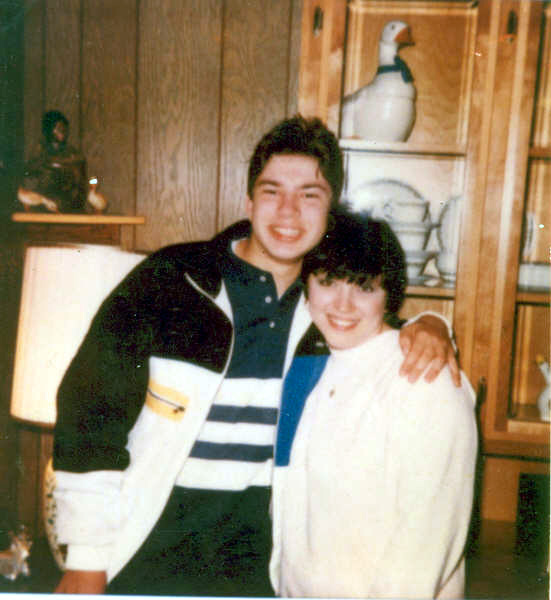
The Arrest
Being a kid in high school is not always easy, but it’s even harder if fitting in is not one’s strong suit.
For a young 16 year-old Jeffery Deskovic, this was indeed the case.
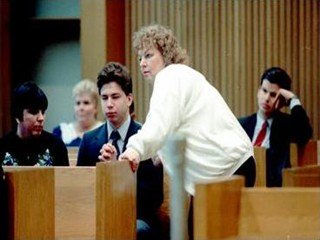
He walked down the Peekskill High School hallways alone. He walked past groups of friends heading from class to class. He was not popular and had few close friends. In fact, anyone he regularly spoke to, he considered a close friend. His 15 year-old classmate, Angela Correa, was one of those people.
Although Correa and Deskovic were not the closest of friends, someone who was nice to Deskovic was close to his heart. Correa was one of those few students who were nice to him. She had even helped him with algebra.
So when Correa was brutally raped and murdered Nov. 15, 1989, Deskovic was upset and in shock.
When it came time for her funeral, Deskovic attended. With emotions running high, he paid his respects, and was devastated at the idea that one of the few who were nice to him was now gone in one of the most brutal ways imaginable.
These thoughts caused him to begin crying uncontrollably.
The police, however, believed Deskovic was showing suspicious behavior. They labeled him as a person of interest. During a grueling interrogation which lasted hours, Deskovic claims police scared him into giving a false confession.
“From the police officer’s own testimony, by the end of the interrogation I was on the floor crying uncontrollably in what they described as a fetal position.”
He was told if he confessed he could go home to his mother. Instead, he was handcuffed and arrested.
The trial began for Deskovic. Although he was hopeful about winning, he also knew how easily it could be for police to send him away. But as an innocent man, he always believed there was hope. There had to be some way to show that he did not actually commit this horrible crime.
“My family would tell me, ‘Oh, since you’re innocent, you’re going to win, and I bought into that,” Deskovic explains. “But they extracted a false confession out of me and that was damning.”
On Dec. 7, 1990, his worst nightmare came true.
A jury had convicted a now 17 year-old Deskovic, based upon the testimony from Peekskill police detective Daniel Stephens, that Deskovic had confessed to the crime.
Guilty as charged.
The 17 year-old boy turned to the bailiff and innocently asked, “Well, what’s gonna happen now?”
Hours later he was in handcuffs and chained, prepared to be shipped off to his new home, wondering if the sunlight would hit his face again.
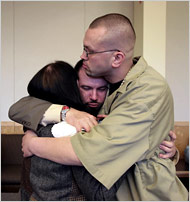
A False Reality
Most like to believe that justice only allows those who are guilty to pay for the consequence for their actions and those who are innocent to be exonerated. But for some like Deskovic, that is a false reality.
Unfortunately, this case is not as uncommon as one would think. The Innocence Project is a non-profit organization and legal clinic dedicated to exonerating inmates based on DNA evidence. It claims that nearly between two to five percent of current inmates are innocent. It has exonerated nearly 350 inmates who have served between 5 months to 35 years in prison. The average prison term for exonerated inmates has been nearly 14 years. More than 70 percent are minorities.
More than 3,000 people write to the organization for help a year, and the backlog of applicants typically borders around 8,000.
The Innocence Project states that some of the reasons why inmates are sent to prison unjustly are eyewitness confusion, government and police misconduct, forced or false confessions, improper forensic science, and improper defense. The organization claims that most officials jeopardizing cases are not prosecuted.
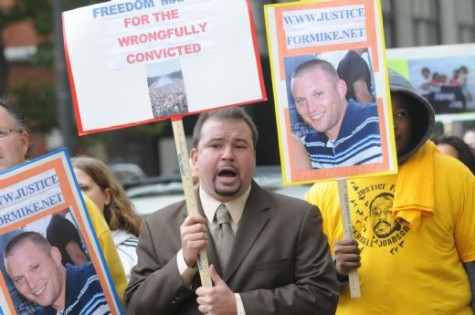
A majority of the exonerees did not have a criminal record beforehand. Exoneree compensation varies from state to state and case to case. An average number is $24,000 per year of incarceration, said The Innocence Project. Those numbers increase when wrongdoing is proven.
Yet only 60 percent of inmates receive compensation, and many exonerees “struggle to rebuild their lives but ultimately create strong social networks and career paths,” says The Innocence Project.
That would be a long way off for Jeffrey Deskovic. He would have those social problems when he would be released in his early thirties. But before had those problems he had to handle, he had a cell to live in for 16 years.
When most kids were just starting to drive, Deskovic was inside a correctional facility.
As days turned into weeks, weeks turned into months, he realized he would not be home soon. He would not be awakening from his nightmare. Prison was now his reality.
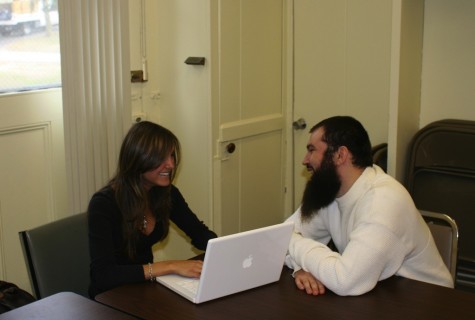
“It really started to sink in when the lawyers told me there was a back log in the courts, and that this was going to be another two or three years,” Deskovic remembers.
Months turned into years. When it was time for his appeal, he thought it was finally going to be over. Yet he lost. It would be just another two or three years. So he appealed again. And lost again multiple times.
He would eventually lose all seven appeals in an 11 year time frame. He began to write letters in hopes that someone, anyone, would listen and come to his rescue.
Once all of an inmates appeals are exhausted, the legal system stops providing inmates with legal counsel. The only way to possibly get back into the court is to find some type of new evidence from an investigator or lawyer. The Deskovics had no means of money to pay them. So he wrote letters for four years without receiving any answers.
His only other option was parole, for which he was regularly denied. Yet to be granted parole, one has to take responsibility for the criminal charges and express remorse.
Many free men say that they lie about their innocence during parole hearings. But pride would not allow Deskovic to do that.
“But here I am telling them that I’m innocent, and they don’t want to hear that,” Deskovic says about the parole board. “I felt fairly certain at that point that I was going to die in prison for a crime that I didn’t commit.”
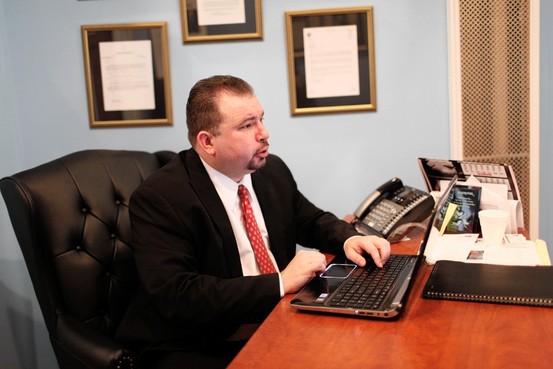
Family Matters
Being imprisoned does not just take a toll on the one who is being locked up. It’s easy to forget the effect that it has on the family surrounding them. And for Deskovic and his family, it was no different.
Everyone in his family believed fully in him and his innocence with exception of his uncle, who actually had a career as a marshall in law enforcement, and his step daughter. Unfortunately for Deskovic, he thought his uncle would believe in him, hoping he would help to get him released.
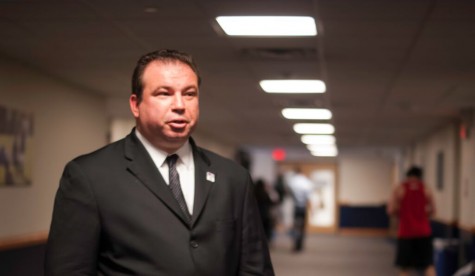
“[My uncle] spoke to the Peekskill police and apparently they satisfied him, so he thought that I was guilty,” Deskovic explained, and stated he felt a family betrayal that hurt his feelings.
It was rare that Deskovic got visits from his family members. Consistently the only person he saw for a while was his mother and his grandmother, before she passed. But as time went on the trip began to prove to be too much for his mother. He saw her less and less often. The four and a half hour trip to get to the facility was a bit much as she got older. Financial issues, as well as back and feet issues, made it difficult to sit in a car that long, let along afford it.
As Deskovic began to talk about his brother, he took a brief pause and breath.
“I only saw my brother about three times in sixteen years.”
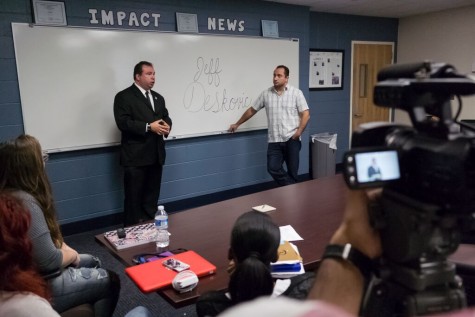
His brother was impacted in many different ways. Constant bullying forced his brother to drop out of high school. Kids would stab him with pencils, hit him, yell at him, telling him that his brother was a rapist and so much more. He could not stand it, especially knowing that his brother was innocent. He turned to substances as a way to cope. Deskovic describes his brother as “being stuck.”
After being released, his family, as well as Deskovic himself, still feels the impact.
His extended family feels a collective guilt for many things: not going to see him enough while he was imprisoned, not getting enough money together to help him; Not helping at all. Some even just for thinking he was guilty.
Deskovic’s uncle, who offered him no help never got to see the day that he was proven innocent. He passed away before seeing his nephew walk a free man. He passed away perceiving his nephew to be a murderer and a rapist.
“I wouldn’t say it devastated me,” Deskovic said about his uncle, “but it has definitely affected me emotionally.”
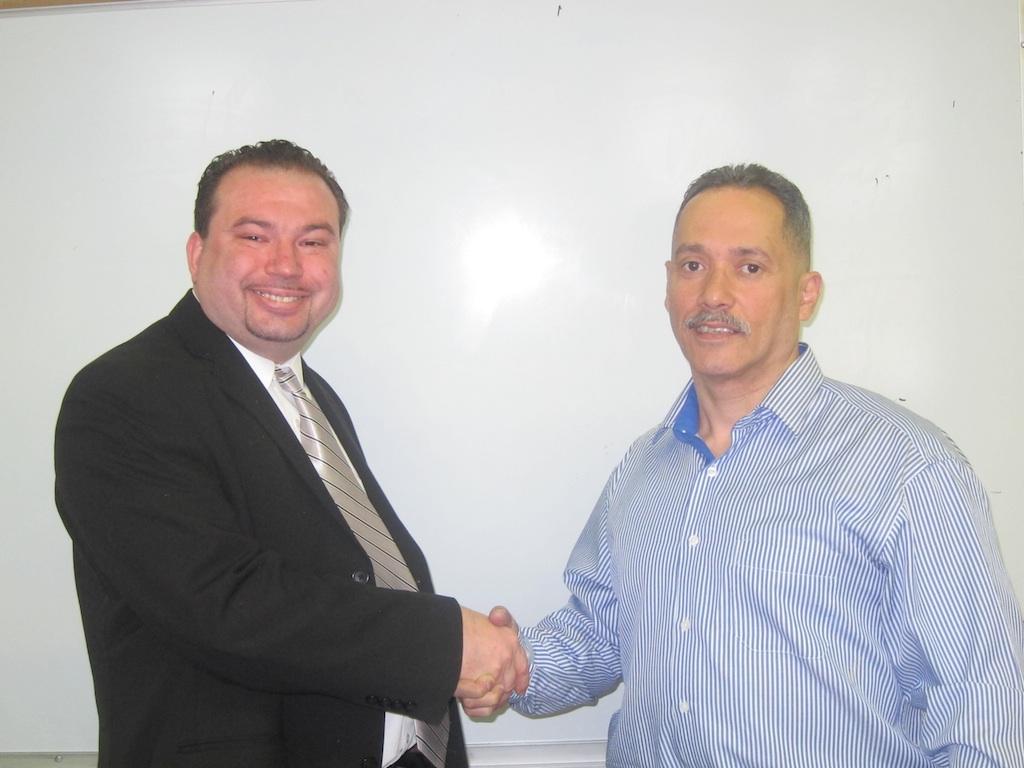
Tomorrow Is A Better Day
After being released, Deskovic had no money, no skills, no resources, and was on the way to having no home. He was also a couple credits short of earning his college degree, a journey he made while he was incarcerated.
At the time of his release, Shelly Alkin, Dean of Articulation at Mercy College, read about Deskovic. She offered him a full scholarship. But Deskovic at the time was 33 and believed he was too old for college.
He was on his way to being homeless when Alkin then upped her offer. She offered him free room and board. For Deskovic, that meant a free home and free meals. So he accepted. And Mercy College became a new home to him.
It gave him the skills he needed to live again. He got his Bachelor’s degree in Behavioral Science. He even graduated with a GPA of 3.93. It sparked something within him to continue his education and earn his Master’s Degree at John Jay College of Criminal Justice in 2013.
“You’re never too old,” Deskovic says about his prior thoughts. “Mercy College saved my life.”
One year later in October 2014, Deskovic was awarded $41.6 million lawsuit for his 16 years of wrongful imprisonment. Due to a high-low settlement he made previously with Putnam County, they only had to pay $10 million.
It’s enough to last him the rest of his life, sipping frozen blue hawaiians on a warm beach somewhere far away from the place that is filled with negative memories and many questions about what could’ve been and why.
Deskovic admits “That does sound nice but… I can’t sleep at night knowing that there are people just like me, wrongfully imprisoned waiting for their justice.”
He used his settlement to start the Jeffrey Deskovic Foundation of Justice.
Deskovic works with his team to help other wrongfully imprisoned felons to get their justice as well. Once they are released, he helps to give them not only a place to live, but a meal, clothes, skills and most importantly a friend in Deskovic himself.
One of those new friends included Deskovic’s first successfully exonerated prisoner, Willie Lopez. Lopez was also wrongfully imprisoned for murder. After 23 and a half years he heard those five magical words. “You are free to go.”
Much like Deskovic, Lopez also entered the world with no money and no skills. Thanks to Deskovic, Lopez had a resource, a place to live and more importantly, a new friend.
Memories like this make Deskovic stand proud with a smile on his face. He looks ahead to the future and what he can do for others – not only to free others like him, but to also educate others on this serious matter.
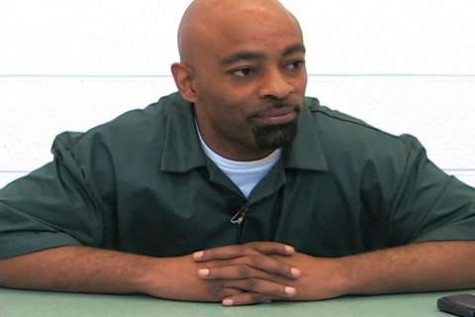
Much like in Deskovic’s case when when DNA tests proved that it was not h3, the data based matched the DNA to a felon who was already in prison for murdering a mother of two. Stephen Cunningham admitted to the murder of Angela Correa after DNA matched him at the scene.
Deskovic is now much more than a wrongfully convicted felon. But he does use his past to help inspire others with a message that screams that just because life might have gone brutally wrong, it can always be used as added fuel to the fire to do something great.
He boasts about achievements like the television show he is now a producer on titled “The Security Brief: The Deskovic Files” and proudly displays his State of New Jersey Department of Law and Public Safety card that certifies him as a Division of Criminal Justice instructor.
“In September,” Deskovic smiles, “I start law school!”
Lopez was finally getting into touch with his daughter and mending that relationship, even going so far as to learn to text. His life was coming together outside of prison walls.
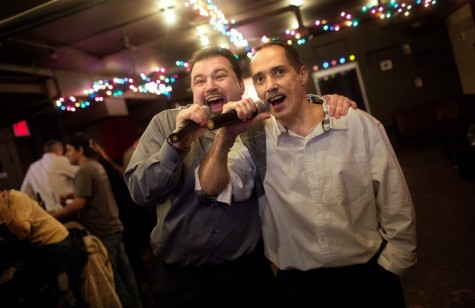
But Lopez never got to see his settlement money as Deskovic had. Days before his status meeting, Lopez passed away of a massive asthma attack before it was finalized. Now it will be awarded to his wife and his daughter.
Although he never got to see his settlement, he was able to die with his innocence and ability to walk the streets as a free man.
“It was a devastating loss,” Deskovic says with a heavy heart “I just take some solace in knowing that that year and a half post exoneration were more than likely the best years of his life.”
There are more Jeff Deskovics and Willie Lopezs out there. That’s why Jeff Deskovic stays. That’s why he fights. That’s why he’s not counting his money or starting businesses or enjoying his freedom on a beach. He works twice as hard now then he ever thought he would if he had a “regular” job. Someplace there is a 16 year-old kid awaiting sentence for a crime he didn’t commit. There is a man serving 20-plus years although he is innocent.
That’s why Jeff Deskovic can’t quit. So many more to free, he says. So many more who need to feel the sun hit their faces as they walk out the door, unchained and reborn.
